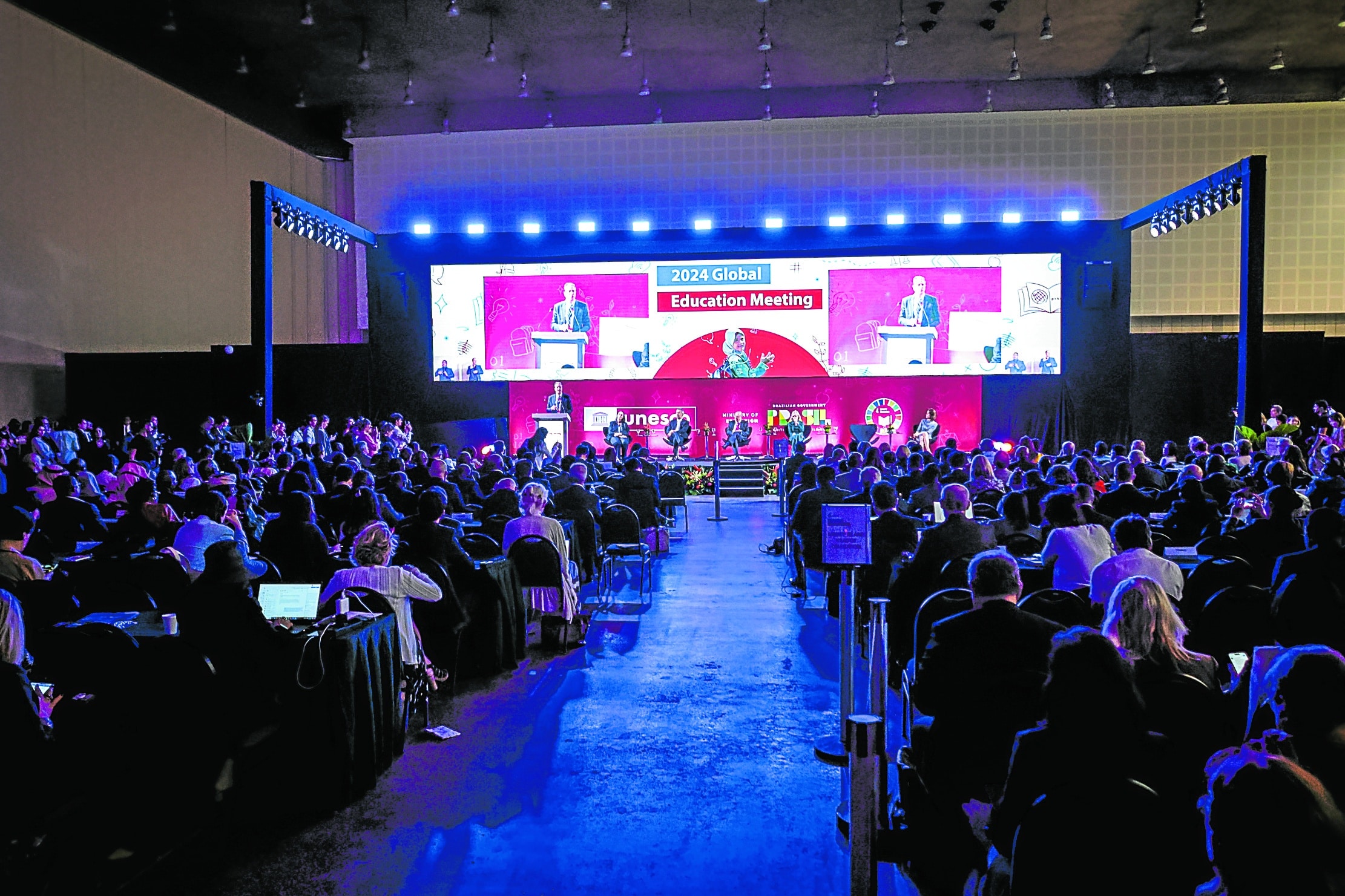
FORGET BUSINESS AS USUAL The Global Education Meeting in Fortaleza, Brazil, convened ministries and departments of education from around the world to call for action on urgent changes needed to keep pace with global learning demands and standards. —UNESCO/Aurélio Alves
MANILA, Philippines — Education is in crisis, and progress toward SDG 4, Quality Education, is severely behind schedule, delayed even more by the COVID-19 pandemic. Globally, 251 million children and youth are out of school.
In the Philippines, 10.7 million children and youth are not attending formal school, as reported by the Philippine Statistics Authority. Knowing that education is the most strategic sector to resolve society’s most pressing challenges, it is critical to our future that the education crisis be addressed.
In line with G20 events, the Global Education Meeting (GEM) in Fortaleza, Brazil, convened ministries and departments of education from around the world and ignited a call to action for the Philippines’ education system, underscoring urgent changes needed to keep pace with global learning demands and standards.
The resounding message? Business as usual just will not cut it. Education must go beyond traditional boundaries, becoming an agile, inclusive, and sustainability-focused force that empowers every Filipino child.
One of the meeting’s most striking implications is the powerful emphasis on inclusion. GEM emphasized that every child, including those with disabilities and those from indigenous and underserved communities, deserves a tailored, supportive education. This declaration strikes at the heart of Philippine society, reminding educators and policymakers alike to embrace reforms that cultivate inclusivity.
Digital equity also took center stage. GEM laid bare the stark consequences of the digital divide, which continues to impact countless Filipino students, especially those in rural areas. The Second Congressional Commission on Education (Edcom 2) revealed that in 2023, the Department of Education’s computerization program had only a 50-percent obligation rate, and the actual disbursement rate was as low as 12 percent.
For the Philippines, this call to action represents a rallying cry to overhaul infrastructure and ensure that every student—no matter their status or background—can thrive in a digitally driven world.
But perhaps the most rousing takeaway was GEM’s emphasis on youth voices. Young leaders called for students and young people not only to be recipients of education but also to be pioneers in shaping educational reform. As the only Filipino on the SDG 4 High-Level Steering Committee, this author represented the 1.9 billion young people of the world at the Global Education Meeting in Brazil in voicing this compelling vision, which places young people and young Filipinos at the helm of their education journey, giving them agency to advocate for change and mold an education system that meets their aspirations and needs.
The outcomes of GEM 2024 for the Philippines are monumental—if the country commits to it. The event’s resulting Fortaleza Declaration calls for nothing less than a transformation, demanding that education adapt swiftly to shape a more connected, inclusive, and youth-led society, and providing a roadmap that resonates more than ever with the state of Philippine education and society.
This vision, if pursued wholeheartedly, would reshape our nation’s future and elevate the Philippines on the world stage as a champion of forward-thinking education.
Ilan Enverga is an award-winning K-12 educator and international teacher trainer for education for sustainable development from the International School for Better Beginnings and Global Changemaker Schools, as well as youth representative on the United Nations SDG4-Education 2030 High-Level Steering Committee and Asia-Pacific representative of the Unesco SDG4 Youth & Student Network.

